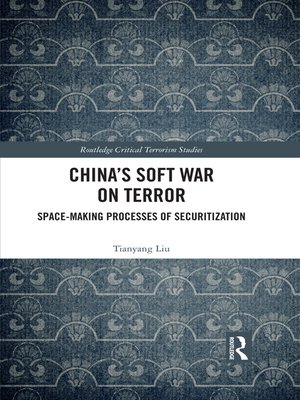China's Soft War on Terror
ebook ∣ Space-Making Processes of Securitization · Routledge Critical Terrorism Studies
By Tianyang Liu

Sign up to save your library
With an OverDrive account, you can save your favorite libraries for at-a-glance information about availability. Find out more about OverDrive accounts.
Find this title in Libby, the library reading app by OverDrive.



Search for a digital library with this title
Title found at these libraries:
| Library Name | Distance |
|---|---|
| Loading... |
This book explores how the Chinese government reasserts its control and management of public spaces as part of its overall counter-terrorism strategy.
The work focuses primarily on the banal and alternative forms that China's 'war on terror' takes: the everyday, non-military, socio-economic and spatio-material. It presents three different cases of control associated with the state's effort to manage material, social and digital public spaces as remedies to terrorism and ethnic unrest in China: the redevelopment project of Kashgar—the 'home' of Uyghur culture—from 2001 to 2017; the forging of local partnerships with potential agents (i.e. the local cadres and imams in Xinjiang) as part of the process of implementing counter-terrorism policies; and an online campaign about international terrorism that appeared on Sina Weibo. Using securitization theory as a theoretical framework, the book establishes links between human geography and critical security studies and advances the understanding of non-confrontational forms of resistance in China. It also focuses attention on the binary relationship between the securitizing agency of the state and the counter-securitization agency of 'terrorists', while also exploring the manner in which other societal forces interact with these processes.
This book will be of interest to students of critical terrorism studies, Chinese studies, human geography, and security studies.







